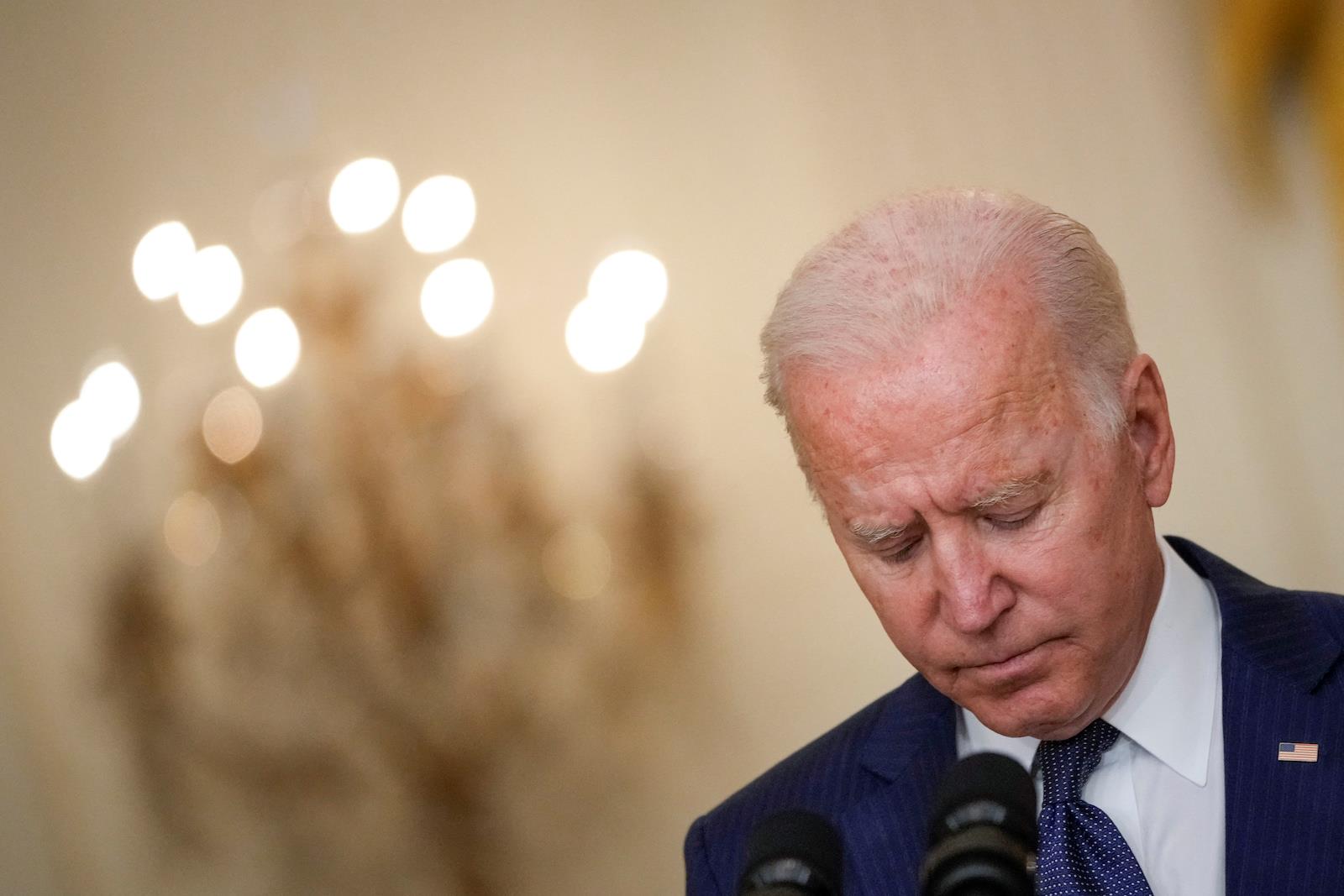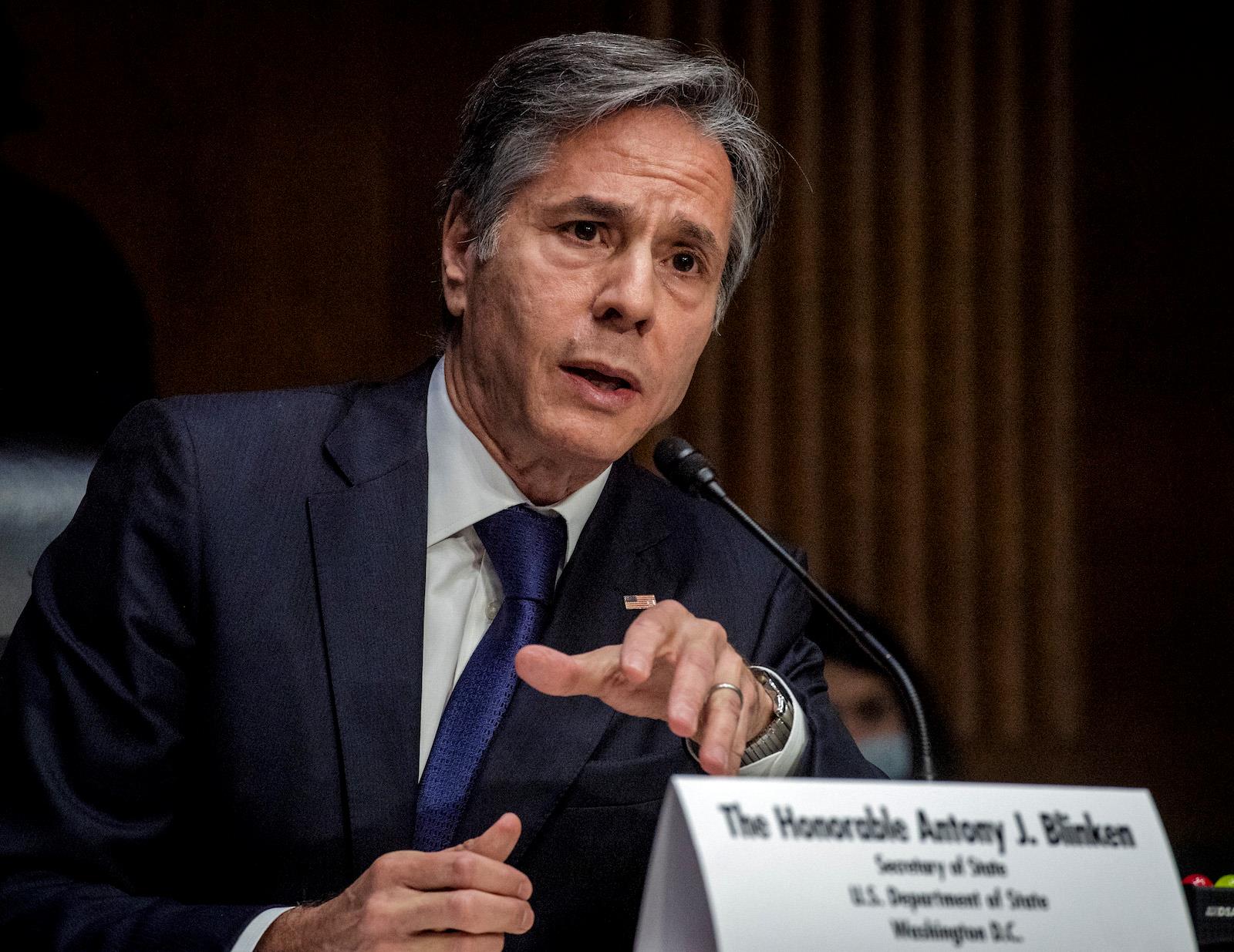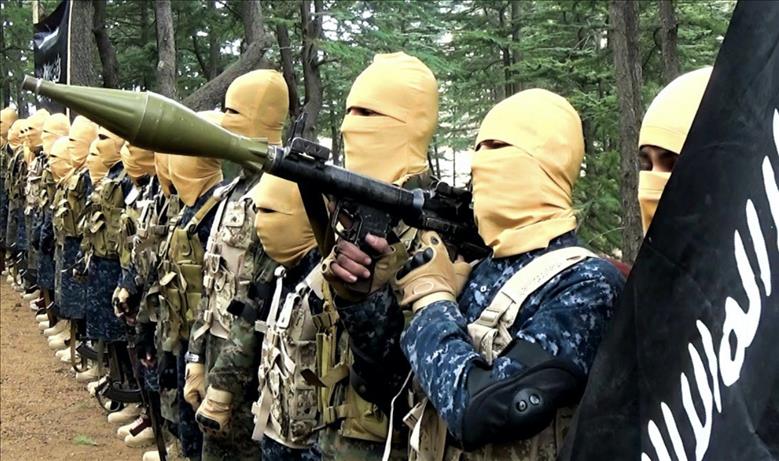
Despite Biden hopes, terrorists swarm in Afghanistan
(MENAFN- Asia Times) President Joe Biden has dismissed the possibility of significant global terrorist threats emanating from Afghanistan. It's not in the interest of Taliban movement that now runs the country to let terrorists operate there, he says.
But just in case, the US can always bomb them from afar.
Those are key pieces of Biden's argument in favor of the August 31 withdrawal of all US troops from the country – instead of leaving, as some military observers had suggested, a skeleton force of perhaps 3,500 soldiers to provide intelligence and air cover for the Afghan army and to keep an eye on terrorists.
Biden's rationales for fully pulling out were in line with his desire to reduce US global military commitments and focus sharply on Russia and China. And he certainly hopes that this justification, and a future quiescent Afghanistan, will let the American public forget the disorderly civilian evacuation from Kabul he oversaw.
But what can we make of his predictions about Afghan-based global terrorism in the future when his judgments about the recent past have been so erroneous?
Notably, he predicted a long interval between the withdrawal and a Taliban takeover. He pulled out all but a handful of US soldiers before the civilian evacuation only to have to return 60,000 to oversee flights out.
And he apparently underestimated the ability of other anti-US militias operating alongside the Taliban to attack US troops during the disengagement. That oversight led to an August 26 suicide bomb attack on Kabul airport that killed 13 US service members and 170 Afghan civilians.

President Joe Biden bows his head in a moment of silence as he speaks about the situation in Kabul, Afghanistan, from the East Room of the White House on August 26. Photo: AFP / Drew Angerer /G etty Images
In the wake of the exodus, US expectations of the future are already looking faulty. Secretary of State Antony Blinken said that Taliban governance will fall in line with contemporary norms because“the world is looking.” He predicted the new cabinet would include opposition voices. It hasn't. Instead it is dominated by hardline holy warriors. Popular dissent in the streets is being violently suppressed. Women are being driven to the sidelines of public life.
The US administration seems not to have grasped the truth about the makeup of the forces arrayed on the ground and the danger they can pose.
Biden implied that threats to the United States and other countries ended with the long-ago killing of Osama bin-Laden, who once took refuge in Afghanistan. The president has all but ignored not only the continued presence in the country of al-Qaeda, the terror organization founded by bin Laden, but also an alphabet of other transnational terror groups operating in Afghanistan.
Does he not know about them or just not want to say?
Among them is the Islamic State of Afghanistan-Khorasan, a small spin-off of the Islamic State in Iraq and Syria. The Afghan branch was the group that sent the suicide bomber to blow up the American soldiers and Afghan civilians outside Kabul airport.
Working out of Afghanistan are the anti-Pakistan Tehrik-i-Taliban and the East Turkistan Islamic Movement, which battles China in the western Chinese province of Xinjiang. Likewise working in Afghanistan are various underground groups from Tajikistan and Uzbekistan as well as India. All share aspirations to establish Islamic states like the emirate the Taliban has declared for Afghanistan.
Washington's downplaying of future terror threats posed by these groups drew a scathing critique from the US Department of Defense's Combating Terrorism Center, based at the US Military Academy:
“Judgements by the Biden administration were flawed, and the Taliban's return to power has exacerbated the terrorism threat beyond the level that existed when the decision to withdraw the U.S. forces was made. A close look at Afghanistan reveals that the United States has left the country with a dynamic terrorism landscape posing local, regional, and transnational threats.”
A possible revival of al-Qaeda is at the top of the list of international concerns. In January, the International Crisis Group research organization noted a key obstacle blocking normalized Taliban relations:“The Taliban have made no public demonstration or assertion that they have acted on commitments to prevent their membership from interacting with or hosting al-Qaeda figures.”
Qaeda's top leader, Ayman al-Zawahiri, has lived underground in Afghanistan for many years. The Taliban set free numerous al-Qaida prisoners from Afghan prisons following their takeover. In an August statement, al-Qaeda chieftains praised the Taliban for“breaking America's back, tarnishing its global reputation and expelling it, disgraced and humiliated, from the Islamic land of Afghanistan.”

This still image from 2012 video shows Al-Qaeda leader Ayman al-Zawahiri speaking from an undisclosed location, released by Al-Qaeda's media arm, as-Sahab. Zawahiri had urged Egyptians to restart their revolution to press for Islamic law and called on Muslims to kidnap Westerners, the SITE Intelligence Group said. Photo: AFP / SITE Intelligence Group
The so-called Haqqani Network, a clan-based terror organization, is also intertwined with the Taliban. The clan-based network carried out some of the deadliest attacks of the past two decades in Afghanistan. Its array of weaponry included rockets, improvised explosive devices and suicide bombers.
Notorious among them were the 2011 assault on the Kabul Intercontinental Hotel, a pair of suicide bombings in 2008 and 2009 against the Indian Embassy in Kabul and later ones against the US Embassy, international military headquarters, the Presidential Palace, and the Directorate of Security headquarters.
The Taliban's ties with the Haqqani Network appear firm. The new minister of the interior, effectively the internal police chief in Afghanistan, heads the group.
The Islamic State in Afghanistan-Khorasan went largely unnoticed in the leadup to the US withdrawal – until the August 23 suicide bombing. The Islamic State has long engaged in bloody feuds with the Taliban over strategy and interpretations of Islamic law. At the same time, the IS occasionally cooperated with the Haqqani Network – making it hard to discount the Taliban's continued tolerance of, if not alliance of convenience with, the organization.
The Islamic State presence was, in any case, not a secret. Nor was its ambition to undertake attacks outside Afghanistan. In 2018, the United Nations reported that,“recent plots detected and prevented” in Europe had been ordered by Afghan IS.
The next year, the UN's Afghanistan monitoring team warned of IS transnational plots issued from Afghanistan. In 2020, Germany arrested four Central Asian suspects who had communicated with at least one Islamic State leader in Afghanistan.
It's likely that China and Pakistan– along with Russia, acting as a stand-in for former Soviet republics in Central Asia – have already pressured the Taliban to prohibit associated groups from using its territory to launch attacks against neighboring countries. It remains to be seen whether these neighbors care if the Taliban tolerates plots against the United States, Europe and India, or recruit foreign jihadists who might flock to Afghanistan, train and go off to create havoc in other countries.
In any event, the Biden Administration is relying on the hope that the Taliban changes their stripes – to become statesmen, rather than terrorists, so as to win international recognition and much needed social and development aid. That implies a break with violent underground groups
Blinken places confidence in the pressure the Taliban will be under from the“international community” to perform suitably, even though many“community” members are less than patrons of liberty. Blinken's hopes seem to be a watered-down version of the original reason for nation-building in Afghanistan: that a country dedicated to good governance in the liberal mold will not engender terrorism.
Having lost the war, Biden wants to impose the formula anyway.

US Secretary of State Antony Blinken testifies during the Senate Foreign Relations Committee hearing to examine the U.S. withdrawal from Afghanistan, on September 14. Photo: AFP / Bill O'Leary / Pool / Getty Images
Parts of that mythical community have already displayed lenient views on dealing with the Taliban. China and Pakistan, for instance, are already sending food and medicine to Afghanistan, no human rights or good-governance strings attached.
Russia and China abstained from a UN Security vote that called for safe passage of foreigners and refugees out of Afghanistan.
China thinks that outside countries should not engage in“wantonly imposing sanctions or applying force,” declared Geng Shuang, China's deputy representative to the UN.
According to Biden, the available US wild card for controlling terror groups if they pop up in Afghanistan is by the use of so-called“over-the-horizon” operations: drone bombings on targets identified by aerial and electronic surveillance.
US and European observers note that in places where such remote-control attacks have been used – Iraq, Syria, Somalia and Yemen – intelligence gathering is supplemented by allied people on the ground and launched from a nearby air base. Even under those conditions, surgical air attacks have been marred by numerous errant civilian killings.
In any case, the best-case conditions for drone warfare do not exist in post-pullout Afghanistan. If proof is needed, the effort to avenge the Kabul airport suicide bombing showed it: the Biden Administration announced that a drone attack had killed a would-be“imminent threat” suicide bomber and ten associates in the city. Instead, the main target turned out to be an aid worker who was delivering water to a neighborhood. The other dead were relatives at his home, including seven children.
It's likely that Biden, who has declined to admit to any missteps in the withdrawal, is also not going to acknowledge the reality of existing global terrorist threats in Taliban-ruled Afghanistan.
It's politically understandable – but not very comforting.
Daniel Williams is a former longtime staff foreign correspondent for the Miami Herald, Los Angeles Times and Washington Post. He's currently based in Rome.

Legal Disclaimer:
MENAFN provides the
information “as is” without warranty of any kind. We do not accept
any responsibility or liability for the accuracy, content, images,
videos, licenses, completeness, legality, or reliability of the information
contained in this article. If you have any complaints or copyright
issues related to this article, kindly contact the provider above.






















Comments
No comment